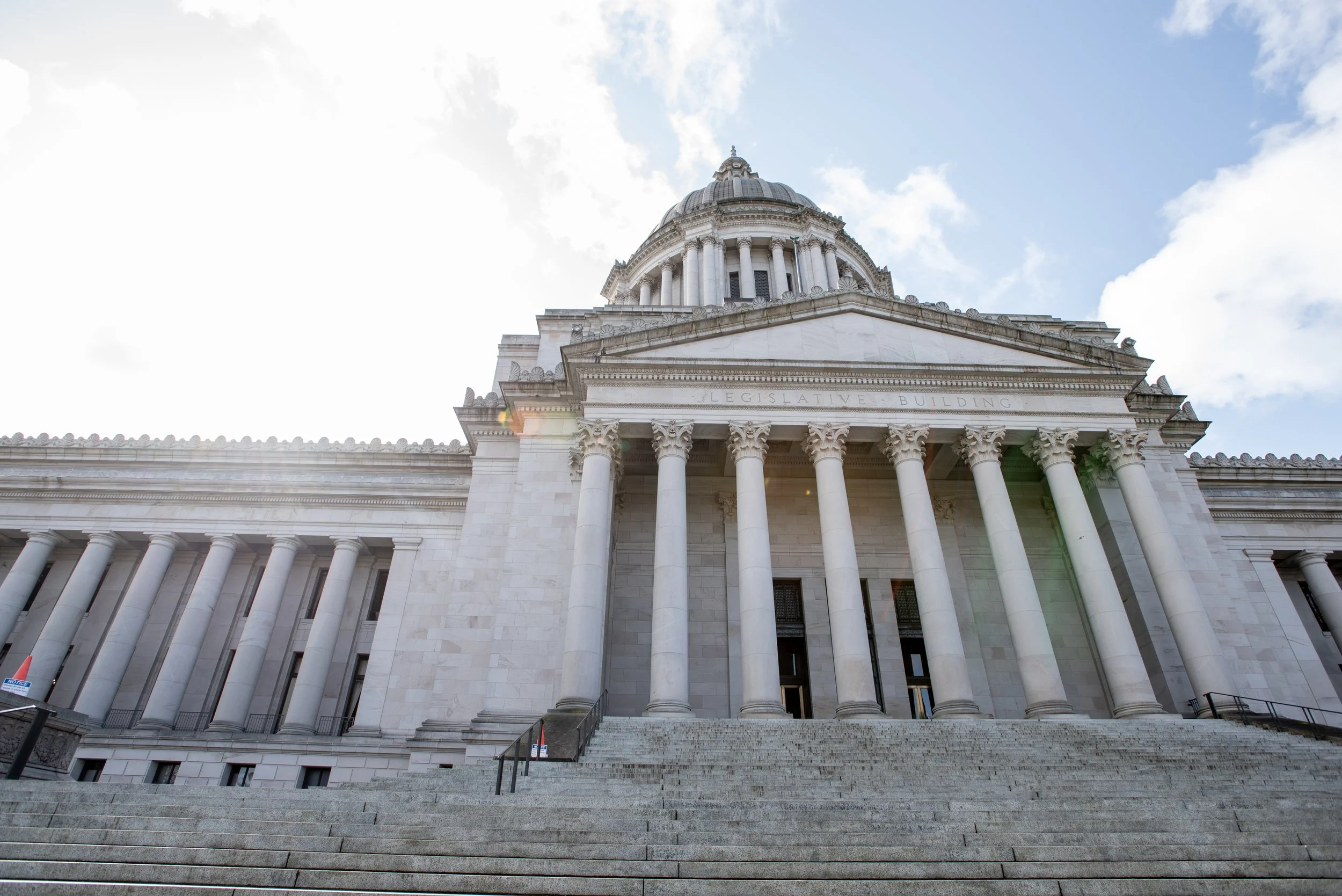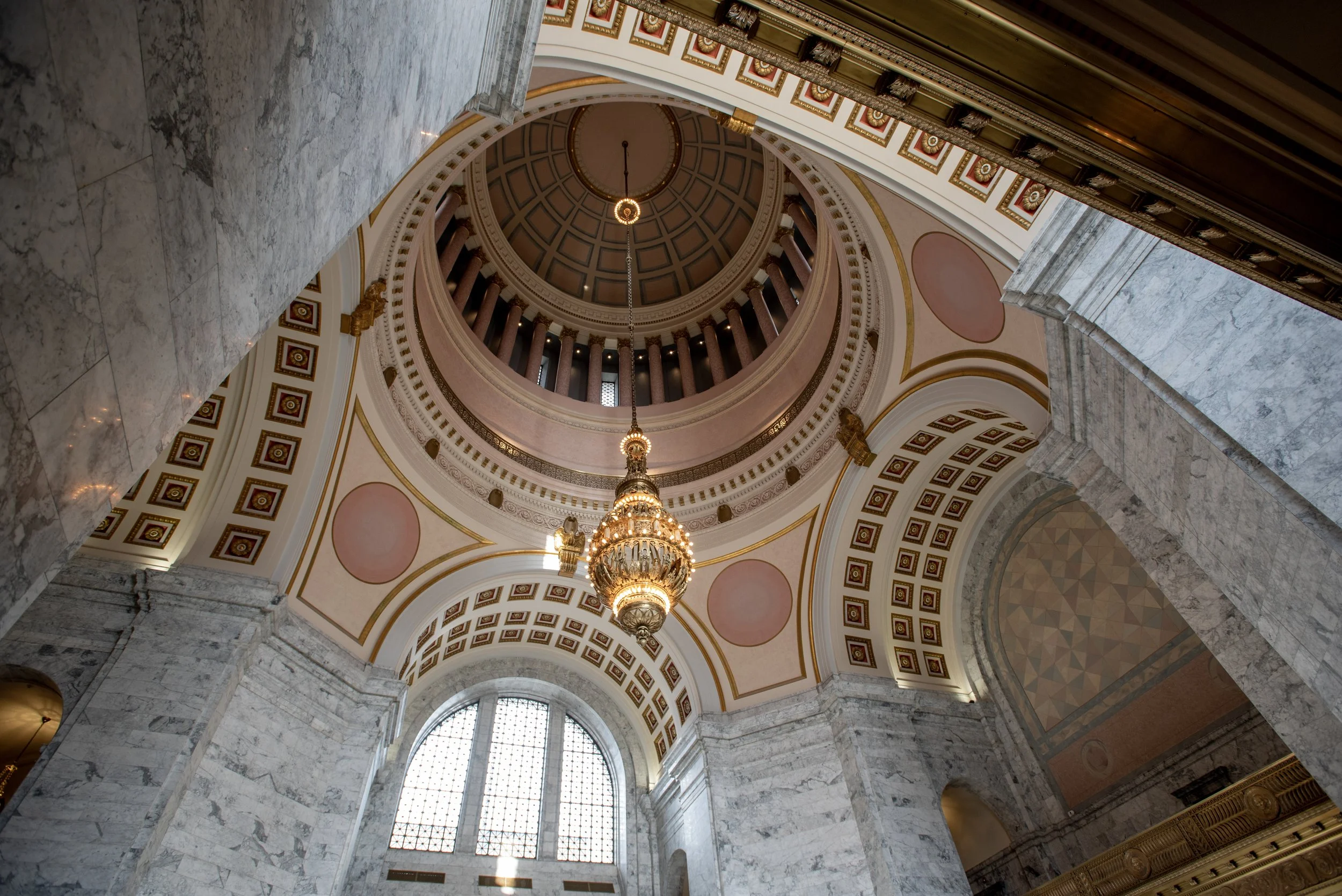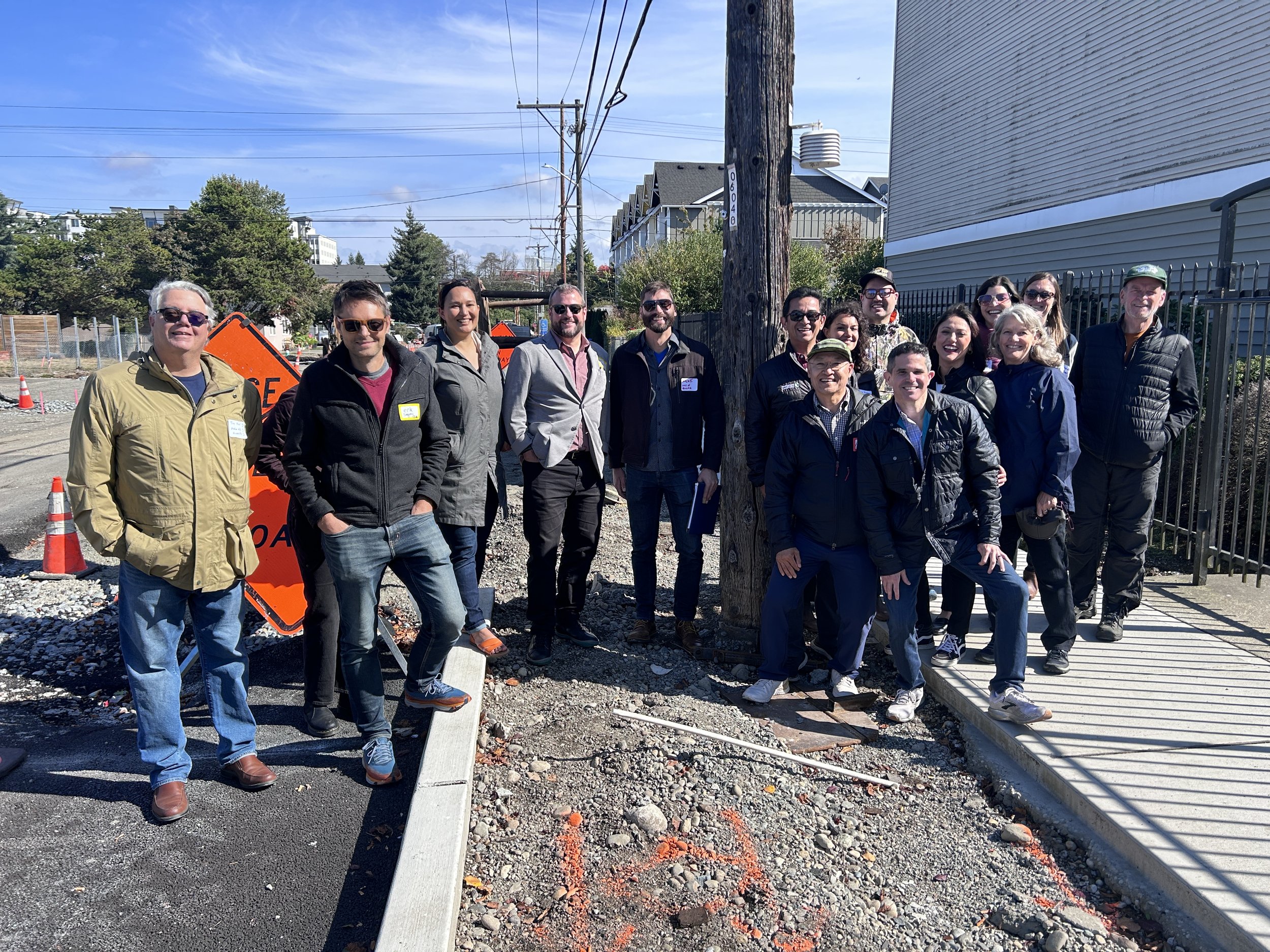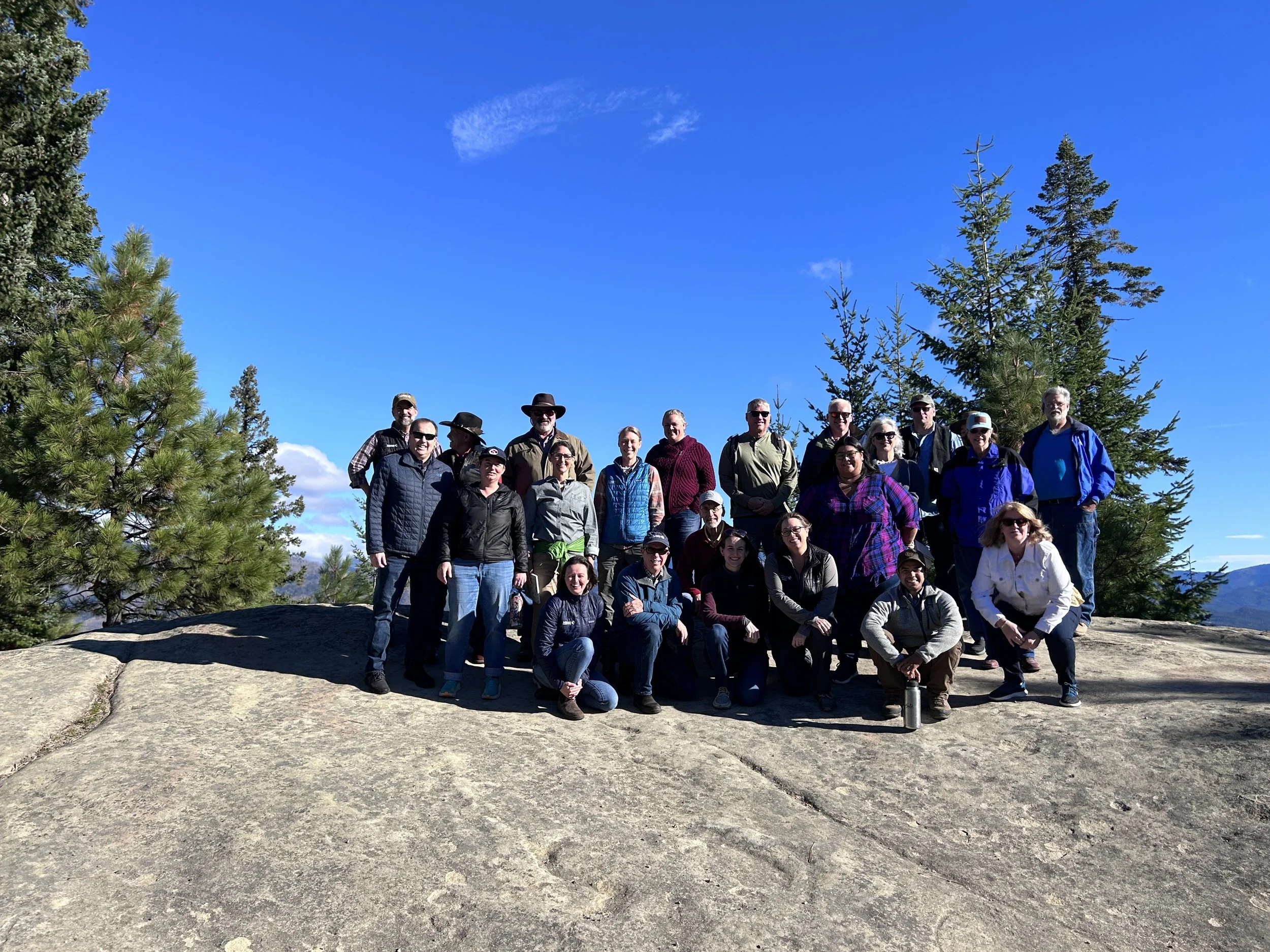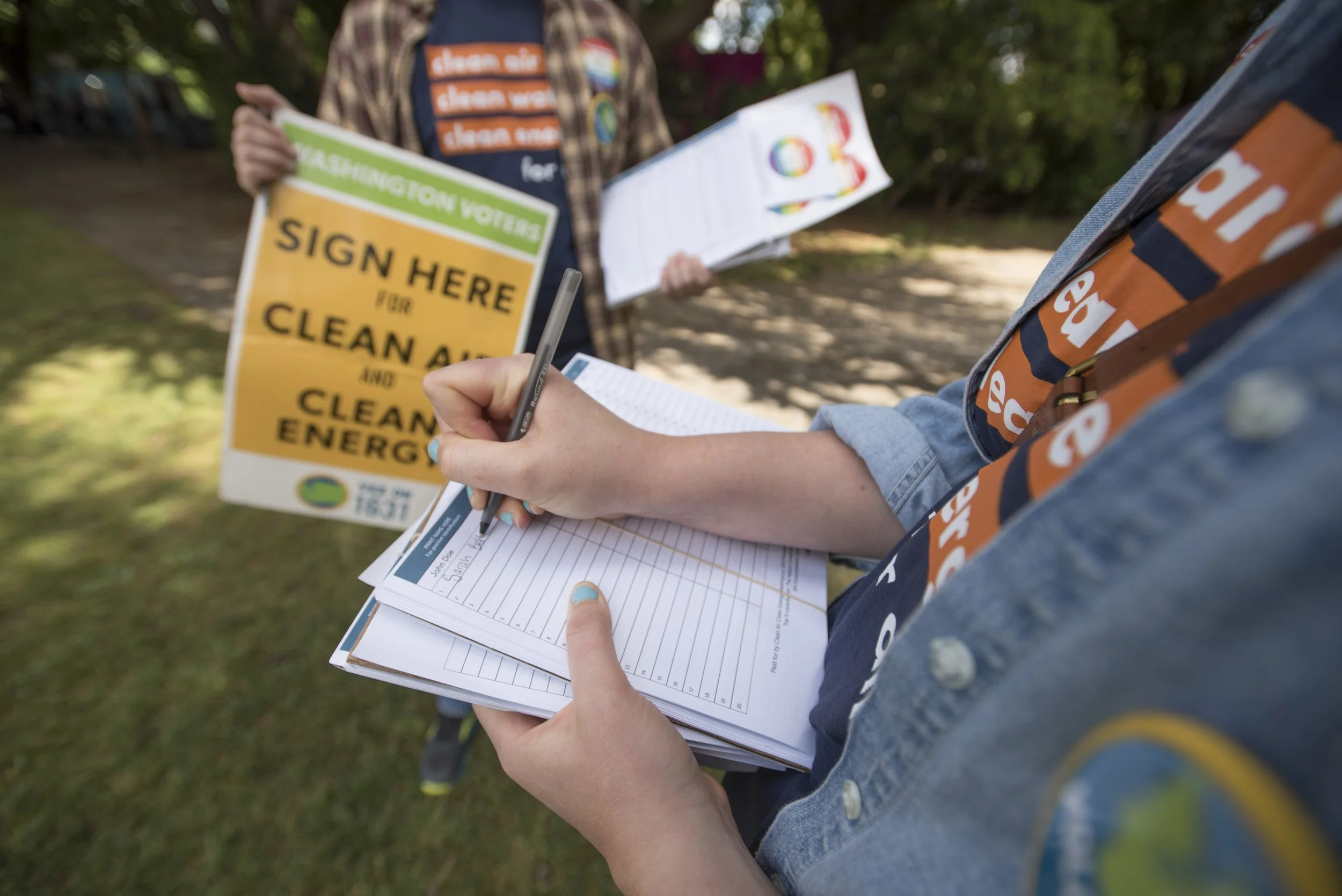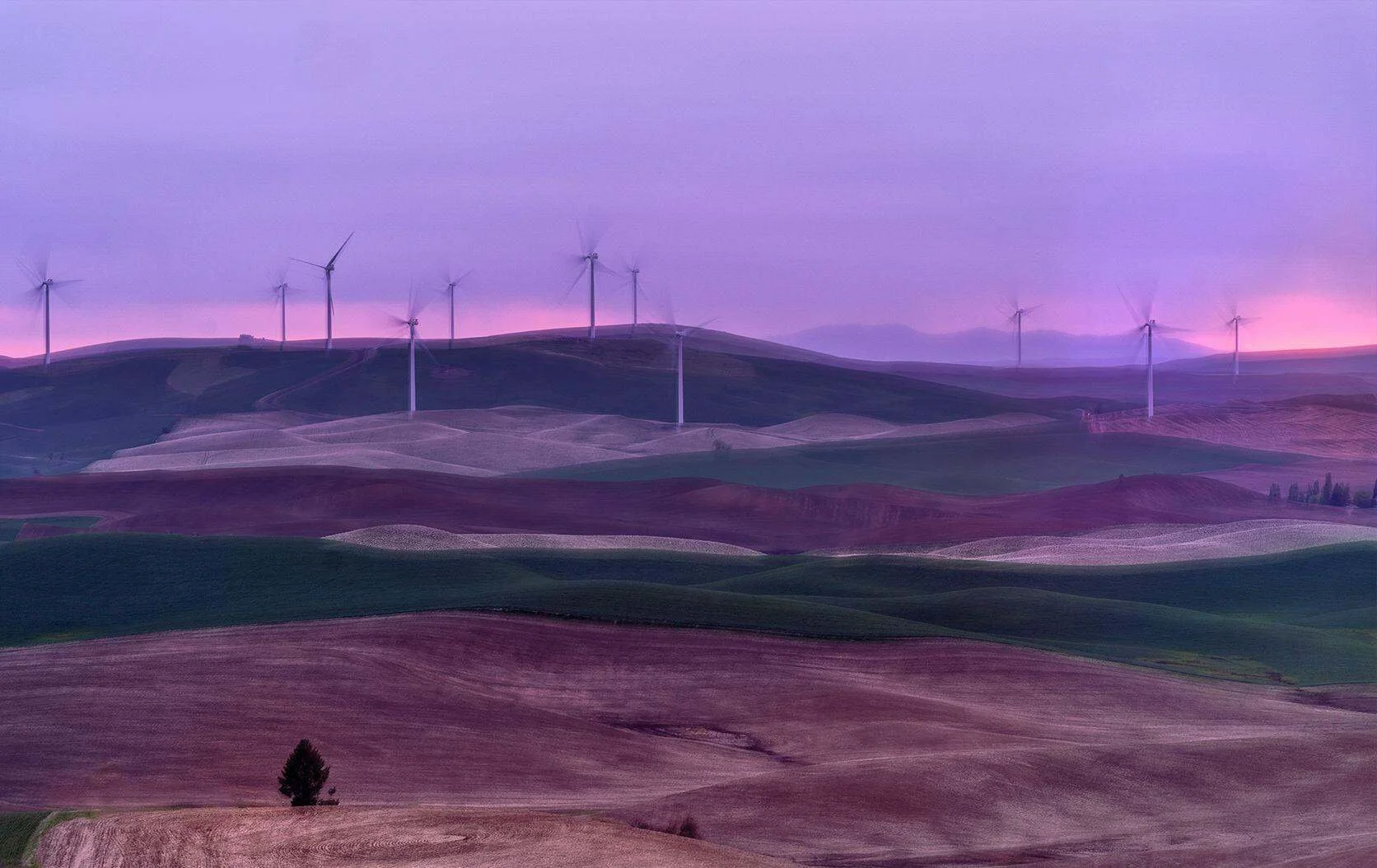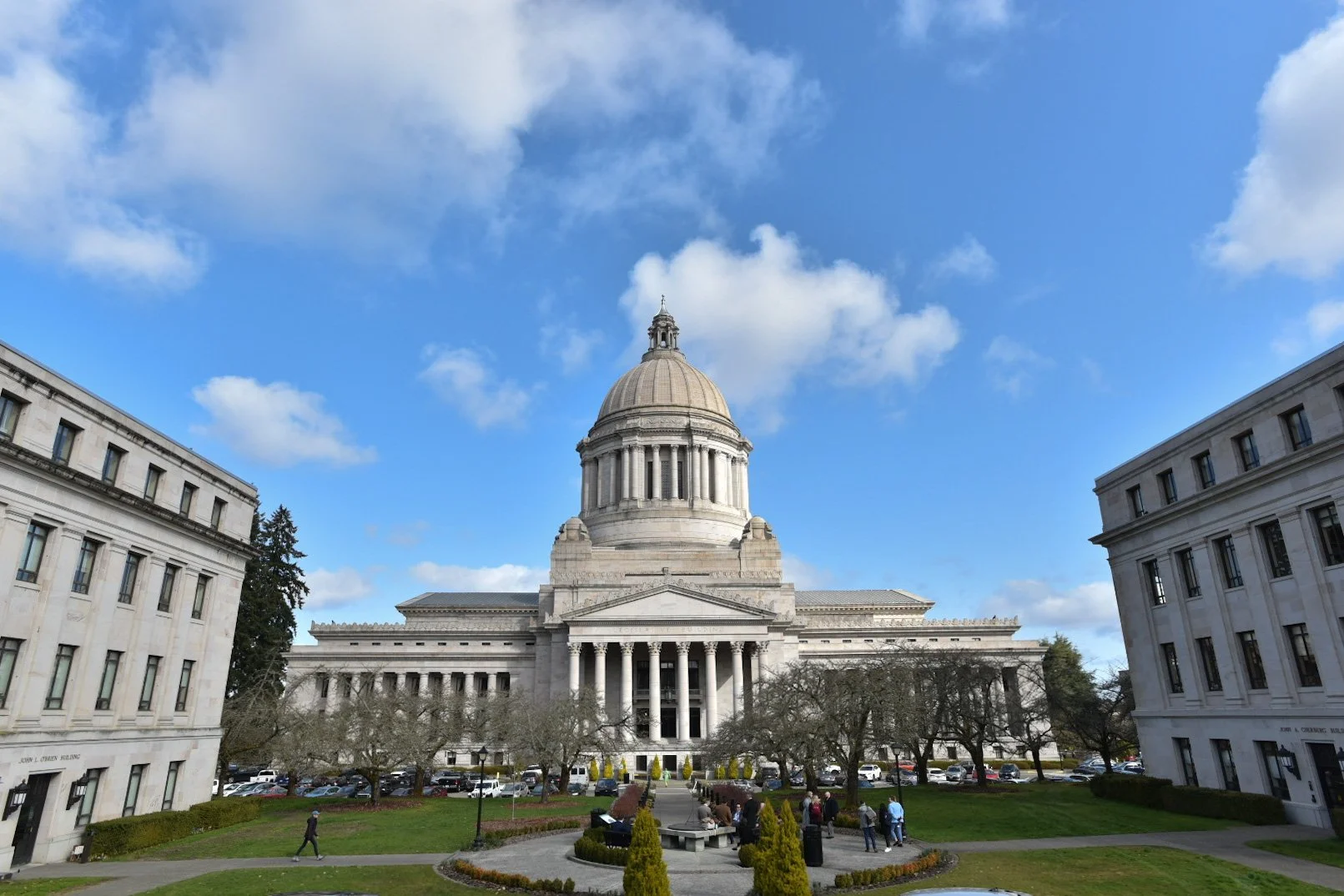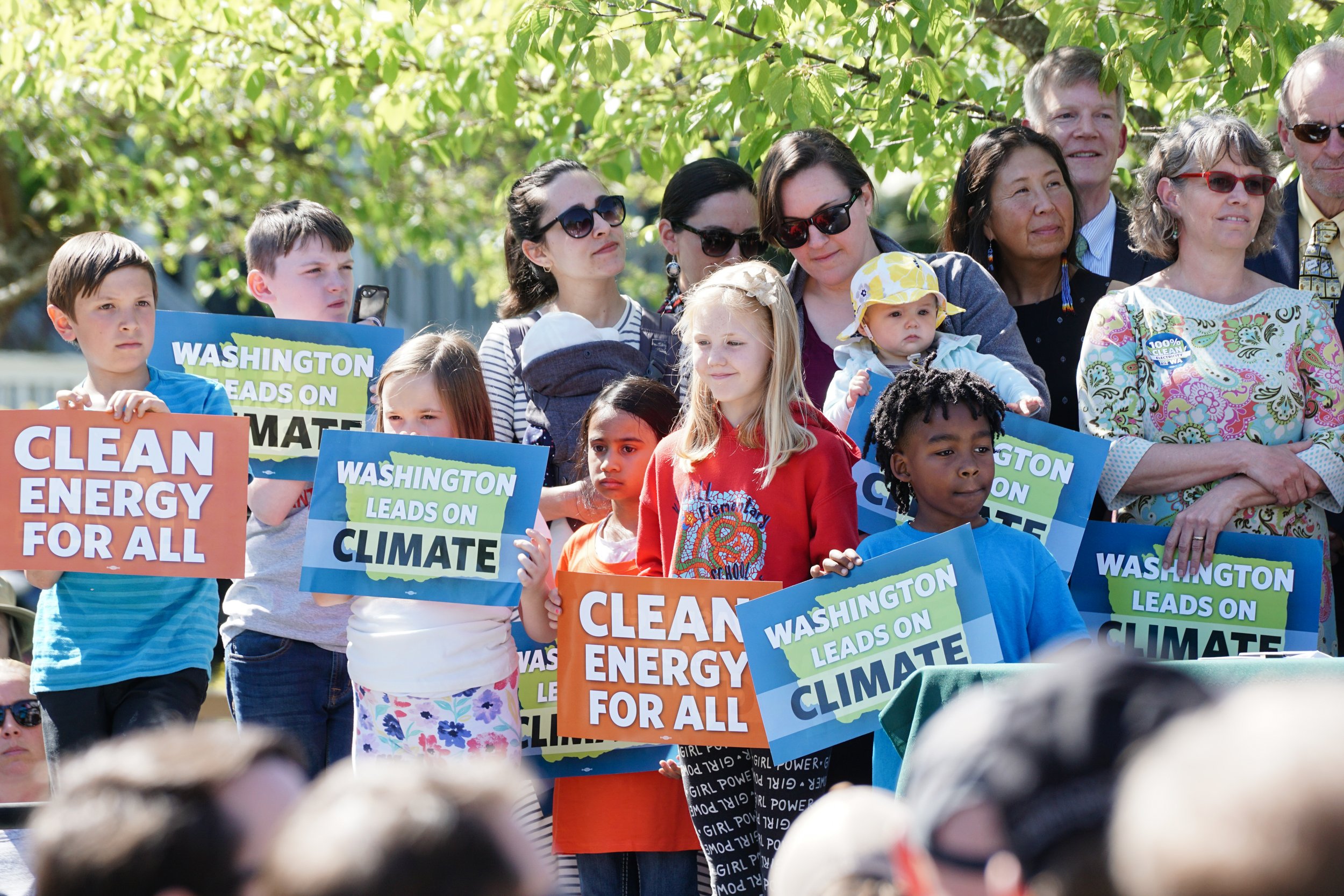The Washington State Legislature has adjourned for the 2023 session, and our team is reflecting on some of our biggest successes, and where we can build to from here.
Our teams worked tirelessly to advance our priorities and be a voice for nature in Olympia. This year we collectively testified at 36 committee hearings, signed in on the record supporting bills 58 times, were mentioned or quoted in five news articles, published one Letter to the Editor, and hosted two lobby days at the capitol. Public advocacy efforts resulted in over 2,200 emails sent from Washingtonians to their representatives on issues that matter most to them. Our advocacy efforts are strengthened by meaningful relationships with partners, and nonpartisan pursuit of effective, science-based policy.
Meeting the Need for Climate Solutions in Biennial Budgets
Thanks to revenue from the Climate Commitment Act, the State Legislature has made a historic level of investments in climate solutions- totaling over $2 billion in the next biennium. In the coming years Washingtonians will see the impacts across many aspects of daily life- expanded clean energy generation, more vehicle and home electrification, preserving and restoring ecosystem function, increasing community resilience to growing risk of wildfire, and centering and investing in those communities most vulnerable to climate impacts.
TNC Forest Manager at Ellsworth Creek Preserve. © Chris Crisman
What Are Natural Climate Solutions
“Leveraging the potential of nature to meet net zero greenhouse gas emissions in Washington State. Learn more.
An area that we’re pleased to see expanding is natural climate solutions- how we respond to and improve climate conditions with our natural and working landscapes. Funding has been allocated to promote carbon storage potential in forest management practices, and the state will increase the acquisition of working forestlands for this purpose. The Legislature also increased grant funding for farmers to expand climate-smart agriculture solutions, and increased investments in salmon restoration efforts, including over $17 million for additional Floodplains by Design projects and $50 million towards riparian grant programs.
Policy Spotlight: Updating the Growth Management Act
The Growth Management Act is a critical tool for municipalities to plan ahead for population growth and land use. Previously, cities and counties conducting their comprehensive planning weren’t required to consider the impacts of a changing climate or the way land use decisions can contribute to our carbon footprint. But increased flooding, wildfire, heat domes, drought, and other extreme weather are destructive to our infrastructure and livelihoods, and will only worsen.
“Comprehensive plan updates that are funded and take into account localized climate change impacts and pollution will have real, lasting benefits towards building community and ecosystem resilience.”
HB 1181, which just passed this session, updates these planning requirements to incorporate climate change and provides tools and resources for our communities to best look ahead and make decisions for the future. Using comprehensive planning to proactively reduce GHG and vehicle miles traveled and prepare communities for climate impacts will increase our health and resilience. This bill was championed by Representatives Duerr and Fitzgibbon, Senator Lovelett, and our partner Futurewise, and has been a top priority for the Environmental Priorities Coalition for the past few sessions. We’re thrilled to see it across the finish line this year.
Policies to Further Climate and Conservation Action
Establishing an interagency clean energy siting coordination council to help improve siting and permitting of clean energy projects. One aim for this is to ensure that impacted communities and Tribal Nations have a voice and to mitigate impacts to natural and working lands. An additional bill directs planning for energy generation and transmission expansion to ensure Washington has a connected, affordable, and reliable clean energy grid.
Establishing the Washington Climate Corps Network, which will expand workforce opportunities in clean energy and natural resource sectors through service opportunities, especially for young adults and veterans.
Important updates were made to the Trust Land Transfer tool, allowing DNR to preserve state trust lands that aren’t revenue-generating but provide important community benefits.
Sustained resources to address the increasing threat of wildfire across the state, and help communities be better prepared to adapt, respond, and recover.
How Can We Build on This Progress
Now that the legislature has made the first allocations of Climate Commitment Act revenue, the next step will be propping up new programs created, conducting necessary rulemaking, and actually implementing these solutions. One area we’re especially engaged in is the Air Quality Health Disparities Investment Account. Funding has been allocated for increased community grants and participatory budget processes and, in collaboration with partners, we’ll continue to advocate for increased monitoring infrastructure to best understand localized pollution and its impacts.
Coho salmon on the Sol Duc River, WA. © Adam Baus, TNC Photo Contest 2021
Continued priorities will be increased climate-smart agricultural practices, expanding the clean energy grid, and supporting the transition to a clean energy economy for all impacted communities. We also will likely see a continued focus on riparian habitat protection and restoration, which received important funding this year. Additionally, as the Climate Commitment Act conducts future credit auctions, we will have a better understanding of the revenue we can expect and will continue to advocate for the best use of those dollars.
Thank you to every individual and organization who spoke up for nature in the legislative session this year. Whether you submitted comments on a bill, emailed your representative, joined a lobby day, or supported us on social media, your engagement makes an impact!
Banner photo: Washington State Capitol, Olympia
© Hannah Letinich 2023

